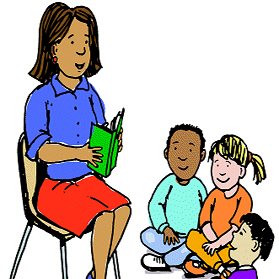
EdnaKrabappel
Chicago, IL
Female, 32
From ’03-‘06, I was a special education teacher in Philadelphia as part of Teach for America. I taught children with mild to moderate special needs (primarily learning disabilities, attention deficits, cognitive disabilities, and behavioral problems) in grades 2 - 8 in all academic subjects. I saw a lot of things and learned a lot...especially the art of patience.
Some ideas you can try are positive incentives and praise when the student shows appropriate behaviors. Sometimes students exhibit negative behaviors to gain attention from others and when you ignore negative behaviors while praising and incentivizing positive behaviors, you may see them engaging in more positive behaviors to get attention. Specific skill instruction in social skills can also be helpful. Your school social worker, school psychologist, or counselor might be helpful in giving you ideas for how to do this. This might help the child better understand how to interact appropriately with classmates and adults in a classroom, recess, lunch, or other school setting. Coordinating with parents to understand the child's day-to-day life at home, any family stresses that impact the child's functioning at school, and any medical or developmental issues that might impact the child's functioning at school can also be very important. If the child is a danger to himself or others, or their behavior impacts their ability to learn or the ability of others to learn, the child might be in need of special education to support the development of self-regulation of emotions or behavior in order to access their education. Speak with a special education teacher, a social worker, school psychologist, or your administrator to discuss what to do next if this is the case.
Special education teachers and colleagues should be communicating almost daily to be sure that all who work with a child with special needs are aware of and understand how to meet the child's individual needs appropriately. This is considered best practice, but there really are not legal guidelines for communication between staff members to coordinate services for children with special needs. This is often determined by school district or school administrator's expectations for staff communication. Communication with parents of a child with special needs is expected to occur at a minimum of three times per year. You are required to give periodic updates of a child's progress on IEP (Individual Education Plan) goals at least three times per year. Best practice is often to communication with parents more often than this, but this is a minimum requirement included in special education law.
Special education modifications to assignments often include things like adding visual, verbal, or gestural cues when giving a direction or asking a question, reducing the number or type of response required from the student, or extended time to respond. For a 2nd grader learning to tell time, you might give them a larger clock to use to learn the numbers, repeated practice counting by 5's up to 60, songs or rhymes about telling time and counting minutes on a clock, practice with a clock that they can manipulate the hour and minute hands of, pictures of clocks that ask them to color in the elapsed time to figure out how many minutes after the hour have passed and how many minutes until the next hour, etc. Hope this helps!
Great question! Good adult support is very thoughtfully designed, implemented, monitored over time, and faded as the child is able to complete more activities on their own. The IEP team should sit down to thoroughly discuss during which activities the child truly needs adult support and during which activities they can function without direct adult support from a teaching assistant. Only children with significant medical, physical, or serious emotional/behavioral problems could need an adult assistant for a large percentage of their school day. It is better to change an assistant over time so the child does not become overly dependent on a specific individual to meet their needs. The very best teacher assistant is one who works themselves out of a job - by helping the child become more and more independent. It is not mean to challenge a child to try doing more things on their own. It is the goal for every child to become an adult capable of independent functioning.
Business Start-Up Specialist
 Should friends go into business together?
Should friends go into business together?
Investment Banker
 How much can bankers earn in a year?
How much can bankers earn in a year?
Beauty Queen
 Is there truth to the stereotypes of “pageant parents?”
Is there truth to the stereotypes of “pageant parents?”
It can vary greatly, depending on the individuals involved. Sometimes a barrier may be that parents are not responsive to communication from teachers or administrators at school and they do not engage in communication or collaboration with school staff to support their child. Conversely, sometimes a barrier is that parents are very communicative and advocate for their child actively but school staff on the child's IEP team are not responsive in addressing the parent's requests for a specific intervention or program to be used with their child. Another common barrier can be that Special Education teachers and General Education teachers do not communicate effectively. It is the responsibility of the IEP case manager to be sure that all other staff who work with a child with special needs know about the child's needs, accommodations, and support services so they can all adequately support the child.
An IEP team can change a student's eligibility by convening a re-evaluation of the child's eligibility for special education. In this process the team will gather assessment data and information from parents about the child's current developmental skills and needs. This may include a medical diagnosis of an attention deficit disorder but should not be limited to this single piece of information. No decision about a student's educational needs should be made based on a single assessment score, evaluation result, or doctor visit. After gathering information from multiple sources (report from teachers, report from parents, doctor's evaluation, assessments by the school psychologist, etc.) the team may very well decide that it is appropriate to change the child's eligibility category to Other Health Impairment rather than another category of eligibility. This is a team decision (not one that can be made only by the school staff or only by the parents). A change in eligibility should be made when doing so will help the child access special education interventions and related services they need to address their educational needs and help them to make adequate progress in their academic development.
This sounds like an awful situation, I am sorry to hear about the unhappy student in the classroom where you work. It can be very difficult to find an appropriate match between an educational program an each student's academic and functional skill needs and abilities. Is it possible that this student is unhappy because her abilities surpass the instruction that's being offered in her classroom? If this is the case, it might help to let her parents know that she is unhappy and they can speak with the teacher or principal about finding a program or level of support that better meet's the student's needs. Is it possible that the student's social-emotional needs are not being attended to? Sometimes students with intellectual disabilities such as Down Syndrome have difficulty explaining their feelings in an age appropriate manner. For a teenage student with a disability this is especially difficult, because typical teenagers are prone to rapid changes in mood and extreme emotional highs and lows. If this is the case, it could help to consult with the school's social worker, counselor, or school psychologist to see if additional social-emotional support could be offered to this student.
-OR-
 Login with Facebook
Login with Facebook (max 20 characters - letters, numbers, and underscores only. Note that your username is private, and you have the option to choose an alias when asking questions or hosting a Q&A.)
(A valid e-mail address is required. Your e-mail will not be shared with anyone.)
(min 5 characters)
By checking this box, you acknowledge that you have read and agree to Jobstr.com’s Terms and Privacy Policy.
-OR-
 Register with Facebook
Register with Facebook(Don't worry: you'll be able to choose an alias when asking questions or hosting a Q&A.)